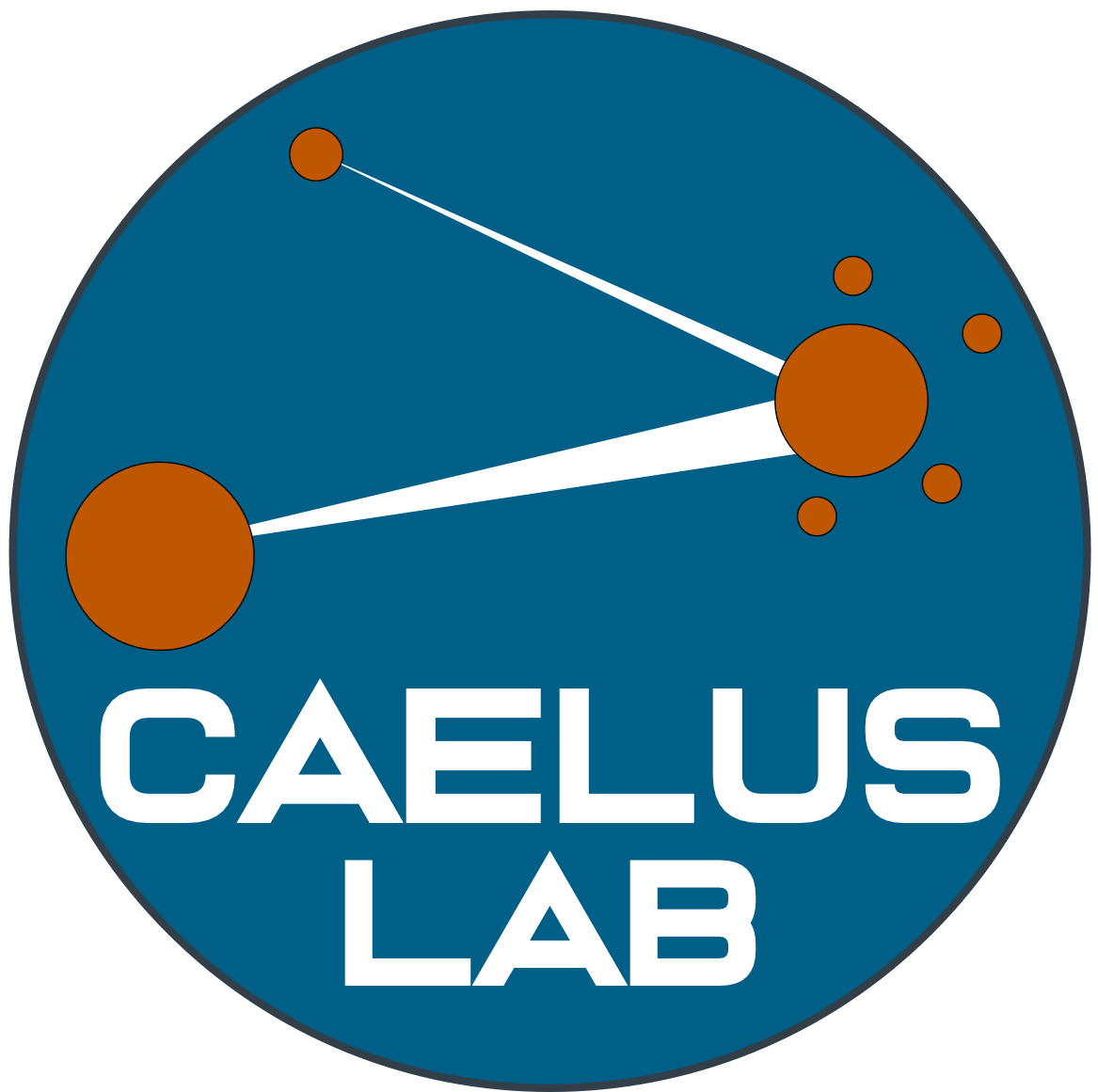Controls, Autonomy, Estimation, and Learning for Uncertain Systems (CAELUS)
The CAELUS Laboratory focuses on research at the intersection of uncertainty quantification and data/information fusion to solve modern and future problems in dynamics and control. More information is available on the About page.
Recent work focuses on problems in astronautics, hence the laboratory is named after the Roman god of the sky and is the root of the English word “celestial”.
- Space Domain Awareness (SDA) is knowledge of the space environment to inform a spacecraft operator’s decisions
- Current research focuses on space-object Detection, Tracking, Identification, and Characterization (DTIC); sensor tasking; and uncertainty quantification/propagation
- The research includes elements of estimation theory, controls, information theory, computational methods, astrodynamics, and other research disciplines
- Developing methods of vision-based absolute and relative navigation with optical and event-based cameras
- The SCOPE-1 mission (in collaboration with the Texas Spacecraft Laboratory and the NEAR Group) will demonstrate new Position, Navigation, and Timing (PNT) on a 3U CubeSat
- Other projects focus on novel sensors or image processing for on-board navigation
- Develop novel and tractable methods for orbit uncertainty propagation for both near-Earth and cislunar orbits
- Use these methods to solve astronautics problems, such as orbit determination and conjunction assessment
- Research includes elements of astrodynamics, spacecraft trajectory design, and risk analysis


